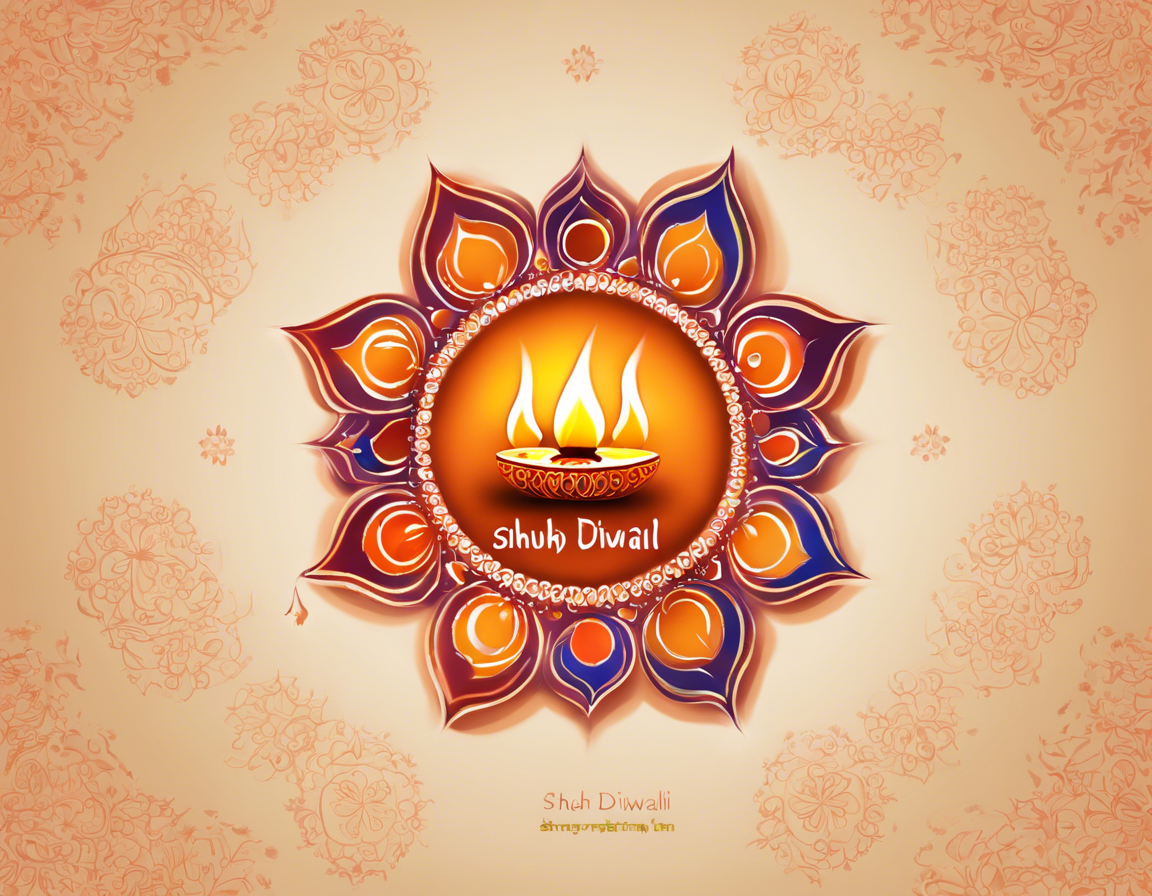Diwali, also known as Deepavali, is one of the most widely celebrated festivals in India. It signifies the spiritual victory of light over darkness, good over evil, and knowledge over ignorance. Every year, people across the country come together to celebrate this auspicious occasion with great enthusiasm and joy.
History and Significance
Diwali has its roots in ancient Hindu mythology. It is believed to commemorate the return of Lord Rama, along with his wife Sita and brother Lakshmana, to Ayodhya after 14 years of exile. The people of Ayodhya welcomed them back by lighting oil lamps, or diyas, to illuminate their path and celebrate their homecoming.
Another legend associated with Diwali is the story of Lord Krishna defeating the demon king Narakasura, symbolizing the victory of good over evil. In Jainism, Diwali marks the nirvana, or spiritual awakening, of Lord Mahavira, the last Tirthankara.
Preparations and Traditions
In the weeks leading up to Diwali, homes and public spaces are cleaned and decorated with rangoli patterns, colorful lights, and flowers. People shop for new clothes and gifts, and exchange sweets and greetings with friends and family members. Special prayers are offered to Lakshmi, the goddess of wealth and prosperity, to invite her blessings into the household.
On the main day of Diwali, families gather for Lakshmi puja, a ritual worship ceremony dedicated to the goddess. They light diyas, offer sweets and fruits, and perform aarti to seek her blessings. Fireworks and firecrackers are set off to drive away evil spirits and add to the festive atmosphere.
Traditions and Rituals in Different Regions
While Diwali is predominantly a Hindu festival, it is celebrated by people of various faiths and communities across India. In North India, the day after Diwali is celebrated as Govardhan Puja, which commemorates Lord Krishna’s lifting of the Govardhan Hill to protect the residents of Vrindavan from a torrential downpour unleashed by Lord Indra.
In West Bengal and Eastern India, Diwali coincides with Kali Puja, dedicated to the fierce goddess Kali. It is a night of intense worship and tantric rituals to seek her protection from negative forces.
In South India, Diwali is celebrated as Naraka Chaturdashi, marking the defeat of Narakasura by Lord Krishna. People wake up before dawn, apply oil on their bodies, take a ritual bath, and offer prayers to seek blessings for a prosperous year ahead.
Eco-Friendly Diwali Celebrations
In recent years, there has been a growing awareness about the environmental impact of traditional Diwali celebrations, particularly the use of firecrackers that contribute to noise and air pollution. As a result, many people are now opting for eco-friendly Diwali celebrations by using sustainable decorations, LED lights, and avoiding the use of firecrackers.
Safety Tips for Diwali Celebrations
While Diwali is a time of joy and merriment, it is important to prioritize safety during the festivities. Here are some essential safety tips to ensure a happy and accident-free celebration:
-
Use earthen diyas: Opt for traditional earthen diyas instead of plastic ones to reduce waste and environmental impact.
-
Keep a bucket of water nearby: In case of emergencies or accidents, having a bucket of water handy can be a lifesaver.
-
Supervise children: Ensure that children are supervised while lighting fireworks and handling diyas to prevent accidents.
-
Avoid overcrowded areas: Celebrate Diwali in open spaces away from crowded areas to minimize the risk of fire incidents.
-
Dispose of waste responsibly: Properly dispose of used fireworks and other waste to maintain cleanliness and prevent accidents.
FAQs (Frequently Asked Questions)
-
What is the significance of lighting diyas during Diwali?
Lighting diyas symbolizes the triumph of light over darkness and the dispelling of ignorance with the light of knowledge. -
Why is rangoli made during Diwali?
Rangoli is a traditional art form made with colored powders, rice, or flower petals to decorate homes and invite blessings from the gods. -
What are some traditional Diwali sweets?
Popular Diwali sweets include laddoos, barfis, jalebis, gulab jamuns, and kaju katli, which are exchanged as gifts during the festival. -
How can I celebrate an eco-friendly Diwali?
You can celebrate an eco-friendly Diwali by opting for sustainable decorations, using LED lights, avoiding firecrackers, and minimizing waste generation. -
What is the significance of Lakshmi Puja during Diwali?
Lakshmi Puja is performed to seek the blessings of the goddess of wealth and prosperity for a successful and prosperous year ahead. -
Can non-Hindus participate in Diwali celebrations?
Diwali is a festival of joy and togetherness, and people from all cultures and backgrounds are welcome to join in the celebrations and festivities. -
How long does Diwali last?
Diwali is a five-day festival, with each day holding special significance and rituals. However, the main day of Diwali is considered the most auspicious. -
What is the tradition of exchanging gifts during Diwali?
Exchanging gifts during Diwali symbolizes love, goodwill, and the strengthening of relationships. It is a way to show appreciation and spread happiness. -
What are some traditional rituals for Diwali evening?
Traditional rituals for Diwali evening include lighting diyas, performing Lakshmi Puja, offering prayers, enjoying festive meals, and sharing sweets with loved ones. -
How can I involve children in Diwali celebrations?
You can involve children in Diwali celebrations by letting them help with decorating, making rangoli, lighting diyas (under supervision), and sharing stories about the significance of the festival.
In conclusion, Diwali is a time for joy, prosperity, and togetherness, where people come together to celebrate the victory of light over darkness and good over evil. By following traditions, practicing safety measures, and promoting eco-friendly celebrations, we can ensure that Diwali remains a vibrant and meaningful festival for generations to come.
